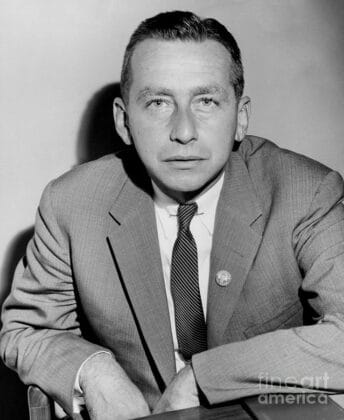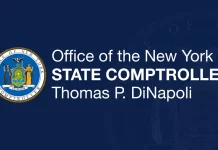
By Mary Hoar, City of Yonkers Historian, President Emerita Yonkers Historical Society, recipient of the 2004 Key to History, Member of the Yonkers Landmarks Preservation Board, and President Untermyer Performing Arts Council
Monday, March 27th
March 27, 1927: Our New York State Champions returned home! Although the Terrace City did not have much time to arrange a welcome, team members John Acropolis, Dave Smith, Al Smith, Mike Mikuliak, Cony DeSalvo, Frank Kosky, George Alotrico, Coach Ira Huber and Manager Fred Palmer were met at the Yonkers Train Station by more than 2,000 people. Blaring horns and cheers led them on a triumphant march to Yonkers High. Official welcomes by Mayor William Walsh and Board of Ed trustees were swept away by the excitement of students rushing to celebrate the champs! Captain Acropolis attributed the win to the “hearty support of the Yonkers people and the efforts of Coach Huber,” adding, team members said “We got to win this game for the folks back home.” Coach Huber credited John Acropolis, saying ,”We had to play the two hardest teams in the tournament, but we came through and it was due to Acropolis and his teammates.” The evening closed with a snake dance, truly making a stellar event in Yonkers High’s history.
Tuesday, March 28th
March 28, 1932: Although the Yonkers counsel objected strenuously, the Yonkers “dump suit” trial started. Former Children’s Court Judge Benjamin Moore, former City Treasurer Frederick Breithack and contractor George T. Kelly sought a $289,000 damage award from Yonkers for the deterioration of property on Nepperhan Avenue, north of Lake Avenue. Plaintiffs claimed city dumping caused the alleged damage, and wanted an injunction to stop all future dumping. First witness was former DPW Commissioner George Herzog of Pier Street, questioned about dumping on the site while he was in office. He testified Yonkers issued permits for dumping by private interests, such as Alexander Smith, Yonkers Lighting, and several contractors. He stated about 50,000 cubic yards of trash would have to be removed to restore the property by the river.
Special Counsel for Yonkers Albert Jordan objected to the entire proceeding, and wanted the complaint dismissed on grounds this type of litigation must be started within three months of the the date of the offense; Justice Morschauser reserved decision. A second Jordan objection was DPW acts were not “binding upon the city;” he was overruled.
Wednesday, March 29th
March 29, 1927: The de Merveaux flogging law suit against former Yonkers resident J. Stuart Blackton went to the jury. Blackton lost but the jury awarded the plaintiff only $500 instead of the $25,000 asked. Blackton’s attorney said the jury had not taken the allegations very seriously.
March 29, 1932: Yonkers Special Counsel Albert Jordan for the “dump suit” was hit with a severe reprimand from Supreme Court Justice Morschauser, hearing the case without a jury. Morschauser reprimanded Jordan for alleging discrimination against our city, adding, he had “not been insulted in this way in a long time.” Jordan complained he made “more than 50 objections” that were not sustained. Morschauser pulled the previous days record and read out a large number of Jordan’s objections that were sustained.
Thursday, March 30th
March 30, 1941: The efforts of Assemblyman Malcolm Wilson resulted in the elimination of the 25-cent charge for all adult visitors to Yonkers’ historic Manor Hall.
March 30, 1946: After a heated argument with Cyrus Lewis, Counsel for the operators of Grassy Sprain Golf Club who leased the club from Yonkers, Mayor Frank told Lewis to tell his clients to “stop trespassing” on property on the eastern border of the course. At the time it was dedicated as a city park. Even though it officially was a city park, the course managers were charging golfers to use that portion of the course. Lewis strongly protested Yonkers leasing the 15th and 16th holes to the veterans without consulting his clients, the house managers, and felt Yonkers was giving them the runaround.
Friday, March 31st
March 31, 1927: Although Blackton’s attorney took out an insanity warrant against fencing master Gerard De Merveaux after the trial, he couldn’t be served; process servers couldn’t find him.
March 31, 1943: At a City Hall conference, City Manager William Walsh told Habirshaw Plant Superintendent Earle Michell his employees must stop all-night and all-day parking near the plant; Mitchell asked ten days to work out a suitable plan. Residents near the plant complained for months about the hazards of longterm employee parking; they parked on both sides of the narrow streets, making it difficult for emergency vehicles like firetrucks to pass.
Saturday, April 1st
April 1, 1933: More than a year later, the Nepperhan Avenue “dump suit” was decided against Yonkers in a ruling handed down by the Appellate Division. The decision awarded the owner $45,000 for damages caused by illegal use of their land for dumping.
April 1, 1955: Fayette S. Dunn, Secretary of Otis Elevator Company, reassured the members of the Yonkers Rotary Club, the thought of “immediately leaving Yonkers has been put aside.”
Sunday, April 2nd
April 2, 1923: Noted song writer and theatrical producer George M. Cohan sang and danced to benefit St. Joseph’s Hospital; not only did he address the audience, he sang songs from “Little Nellie Kelly,” his production on Broadway, and gave a dance exhibition!
April 2, 1939: Gustave Segschneider of Belmont Avenue turned 90 and shared a few of his tips for a long life. He loved dancing and strong cigars, and staying up late was his “fountain of youth!
He particularly enjoyed the company of young people, and had many neighborhood children for friends. He was not a fan of beer, but thought a glass of whiskey every now and then was a very good thing!
Questions or comments? Email YonkersHistory1646@gmail.com.
For information on the Yonkers Historical Society, Sherwood House and upcoming events, please visit our website www.yonkershistoricalsociety.org, call 914-961-8940 or email info@yonkershistoricalsociety.org.





